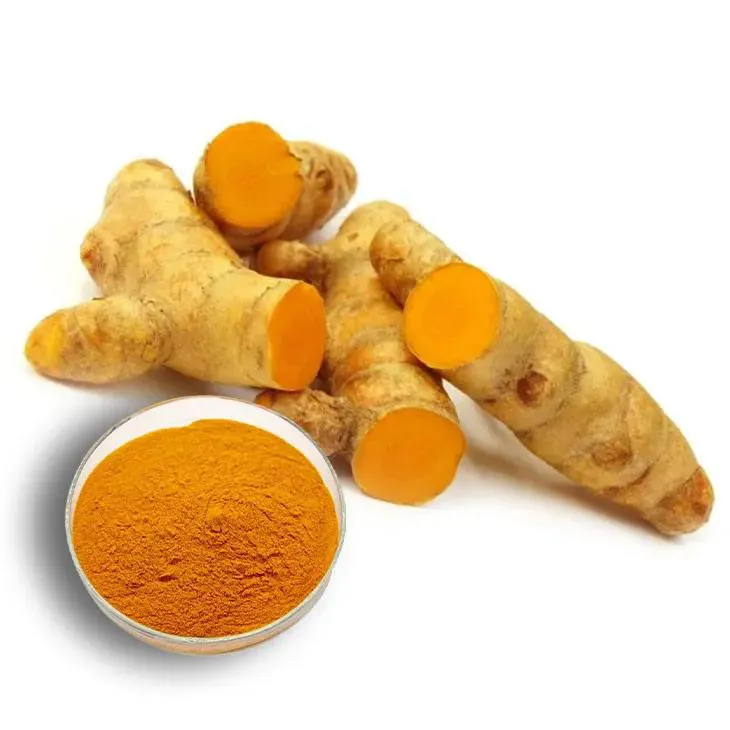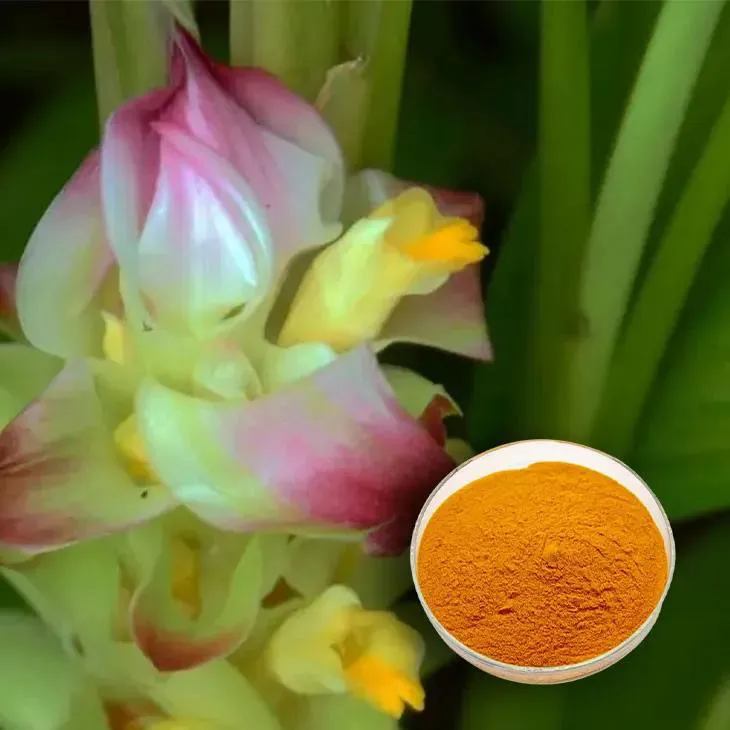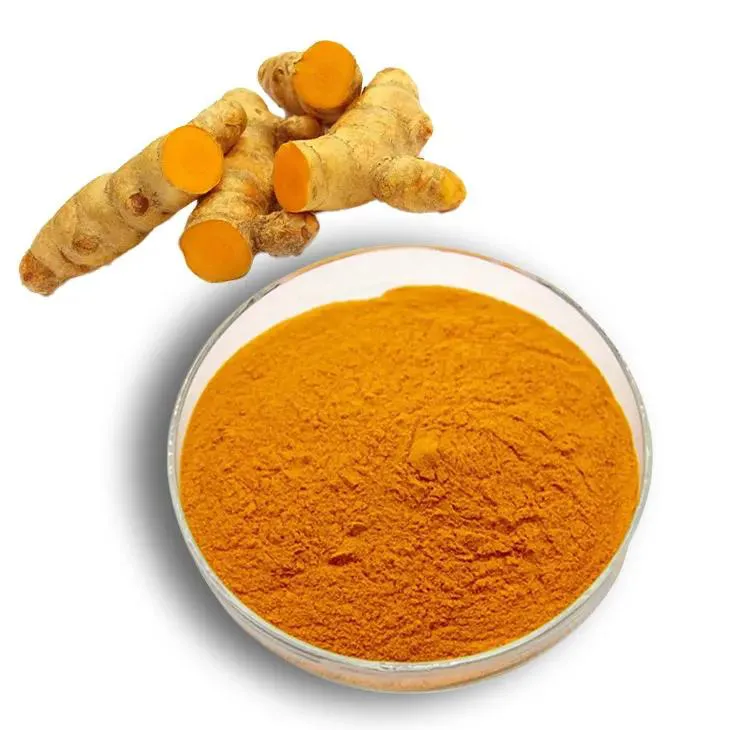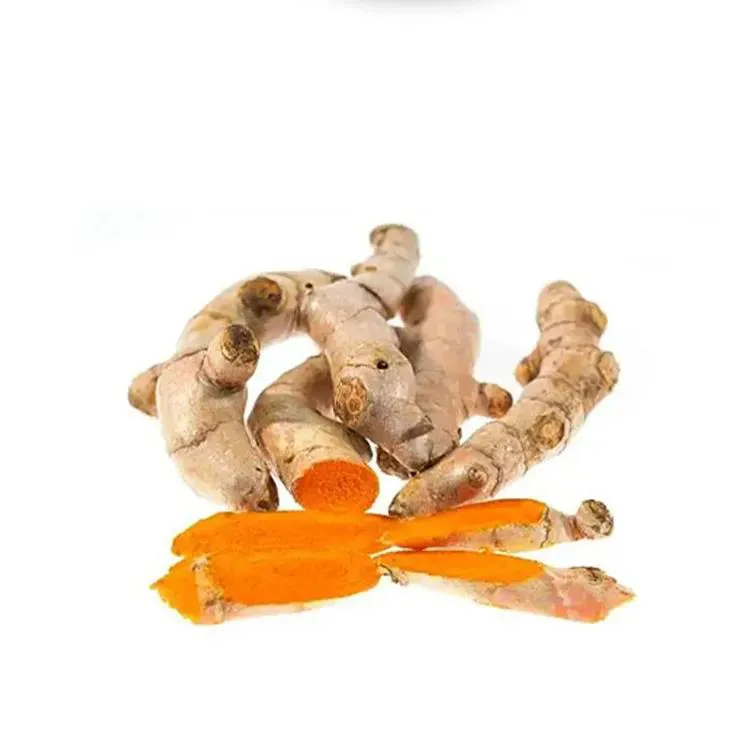- 0086-571-85302990
- sales@greenskybio.com
Use curcumin extract to prevent diseases and enhance immunity.
2024-11-13

1. Introduction
Turmeric, a well - known spice in Asian cuisine, has been used for centuries not only for its flavor but also for its potential health benefits. The active ingredient in turmeric, Curcumin, has emerged as a subject of significant scientific interest in recent years. Curcumin extract is believed to possess a wide range of properties that can prevent diseases and enhance the immune system.

2. Chemical Structure and Properties of Curcumin
Curcumin has a unique chemical structure that contributes to its biological activities. It is a polyphenolic compound with a diarylheptanoid structure. This structure endows curcumin with antioxidant, anti - inflammatory, and antimicrobial properties. The antioxidant property of curcumin is due to its ability to scavenge free radicals. Free radicals are highly reactive molecules that can damage cells and DNA, leading to various diseases. By neutralizing free radicals, curcumin helps protect the body from oxidative stress - related diseases such as cancer, cardiovascular diseases, and neurodegenerative disorders.

3. Mechanisms of Disease Prevention
3.1 Anti - Inflammatory Mechanism
Chronic inflammation is associated with many diseases, including arthritis, diabetes, and certain cancers. Curcumin exerts its anti - inflammatory effects through multiple pathways. It can inhibit the activation of nuclear factor - kappa B (NF - κB), a key transcription factor that regulates the expression of many inflammatory cytokines. By suppressing NF - κB activation, curcumin reduces the production of inflammatory mediators such as interleukin - 1β (IL - 1β), interleukin - 6 (IL - 6), and tumor necrosis factor - α (TNF - α). This helps to alleviate inflammation and prevent the development of inflammation - related diseases.
3.2 Antioxidant Mechanism
As mentioned earlier, curcumin is a powerful antioxidant. It can directly scavenge reactive oxygen species (ROS) and reactive nitrogen species (RNS). ROS and RNS are produced during normal cellular metabolism, but excessive production can lead to oxidative damage. Curcumin also upregulates the expression of antioxidant enzymes such as superoxide dismutase (SOD), catalase (CAT), and glutathione peroxidase (GPx). These enzymes help to further detoxify ROS and RNS, maintaining the redox balance in the body.
3.3 Antimicrobial Mechanism
Curcumin has been shown to possess antimicrobial activity against a variety of pathogens, including bacteria, viruses, and fungi. For bacteria, curcumin can disrupt the bacterial cell membrane, interfere with bacterial metabolism, and inhibit bacterial biofilm formation. Against viruses, curcumin may block viral entry into host cells, inhibit viral replication, and modulate the host immune response to viruses. In the case of fungi, curcumin can damage the fungal cell wall and inhibit fungal growth.

4. Role in Immune System Enhancement
The immune system is the body's defense against foreign invaders such as bacteria, viruses, and parasites. Curcumin can enhance the immune system in several ways. Firstly, it can stimulate the activity of immune cells such as macrophages, neutrophils, and natural killer (NK) cells. Macrophages are phagocytic cells that can engulf and destroy foreign pathogens. Curcumin can enhance the phagocytic capacity of macrophages, making them more efficient at clearing pathogens. Neutrophils are the first line of defense against bacterial infections, and curcumin can increase their chemotactic and phagocytic activities. NK cells are important for the innate immune response against virus - infected cells and tumor cells, and curcumin can boost their cytotoxic activity.
Secondly, curcumin can modulate the cytokine network in the body. Cytokines are small proteins that play important roles in cell - cell communication in the immune system. Curcumin can regulate the production of cytokines such as interferon - γ (IFN - γ), IL - 12, and IL - 10. IFN - γ and IL - 12 are important for promoting the Th1 - type immune response, which is effective against intracellular pathogens such as viruses and some bacteria. IL - 10 is an anti - inflammatory cytokine that helps to maintain immune homeostasis.

5. Scientific Research on Curcumin Extract
5.1 Cancer Research
There has been extensive research on curcumin's potential role in cancer prevention and treatment. In vitro studies have shown that curcumin can inhibit the growth and proliferation of various cancer cell lines, including breast cancer, colon cancer, and prostate cancer cells. Curcumin can induce apoptosis (programmed cell death) in cancer cells through multiple mechanisms, such as activating caspases, downregulating anti - apoptotic proteins, and upregulating pro - apoptotic proteins. In vivo studies in animal models have also demonstrated that curcumin can reduce tumor growth and metastasis.
5.2 Cardiovascular Disease Research
For cardiovascular diseases, curcumin has been studied for its effects on lipid metabolism, blood pressure, and endothelial function. Curcumin can lower plasma cholesterol and triglyceride levels by inhibiting cholesterol biosynthesis and enhancing cholesterol excretion. It can also reduce blood pressure by relaxing blood vessels and improving endothelial function. Endothelial cells line the inner surface of blood vessels, and their proper function is crucial for maintaining vascular health. Curcumin can enhance endothelial - derived nitric oxide (NO) production, which helps to dilate blood vessels and prevent platelet aggregation.
5.2 Neurodegenerative Disease Research
In neurodegenerative diseases such as Alzheimer's and Parkinson's diseases, oxidative stress and inflammation play important roles. Curcumin has been shown to have neuroprotective effects in pre - clinical studies. It can reduce amyloid - β (Aβ) deposition in the brain, which is a hallmark of Alzheimer's disease. Curcumin can also inhibit the activation of microglia, the brain's immune cells, and reduce the production of inflammatory mediators in the brain. In Parkinson's disease, curcumin may protect dopaminergic neurons from oxidative stress and inflammation - related damage.
6. Practical Applications in Maintaining Health
6.1 Dietary Supplementation
One of the most common ways to incorporate curcumin into the diet is through dietary supplementation. Curcumin supplements are available in various forms, such as capsules, tablets, and powders. However, the bioavailability of curcumin is relatively low due to its poor solubility in water and rapid metabolism in the body. To improve its bioavailability, curcumin is often formulated with other substances such as piperine (found in black pepper). Piperine can inhibit the enzymes that metabolize curcumin, thereby increasing its absorption in the body.
6.2 Food Fortification
Curcumin can also be used for food fortification. It can be added to various foods and beverages, such as juices, smoothies, and baked goods. This not only enhances the nutritional value of the food but also provides a convenient way for people to consume curcumin. However, the addition of curcumin to food needs to consider factors such as taste, color, and stability.
6.3 Cosmetic Applications
Due to its antioxidant and anti - inflammatory properties, curcumin has potential applications in the cosmetic industry. It can be used in skin care products such as creams, lotions, and serums. Curcumin can help to protect the skin from oxidative damage, reduce inflammation, and improve skin complexion. It may also have potential in treating skin diseases such as acne and psoriasis.
7. Conclusion
In conclusion, Curcumin Extract from turmeric has shown great potential in preventing diseases and enhancing immunity. Its multiple mechanisms of action, including anti - inflammatory, antioxidant, and antimicrobial effects, contribute to its health - promoting properties. Scientific research has provided evidence for its role in various diseases such as cancer, cardiovascular diseases, and neurodegenerative disorders. Practical applications in dietary supplementation, food fortification, and cosmetics also make it accessible for people to benefit from curcumin. However, further research is still needed to fully understand its mechanisms and to develop more effective ways to utilize curcumin in promoting human health.
FAQ:
1. What are the main diseases that Curcumin Extract can prevent?
Curcumin extract has shown potential in preventing various diseases. It may help prevent certain types of cancers, such as breast, colon, and prostate cancer, by interfering with cancer cell growth, angiogenesis (formation of new blood vessels that tumors need to grow), and metastasis. It also has anti - inflammatory properties, which can be beneficial in preventing chronic inflammatory diseases like arthritis, where it may reduce joint inflammation and pain. Additionally, curcumin extract may play a role in preventing heart disease by improving lipid profiles, reducing oxidative stress, and preventing platelet aggregation.
2. How does curcumin extract boost the immune system?
Curcumin extract can enhance the immune system through multiple mechanisms. It modulates the activity of immune cells such as macrophages, which are important for engulfing and destroying pathogens. It also regulates the production of cytokines, which are signaling molecules that help coordinate the immune response. By reducing inflammation, it creates a more favorable environment for the immune system to function properly. Moreover, curcumin may enhance the function of lymphocytes, which are key players in the adaptive immune response, including T - cells and B - cells.
3. Are there any side effects of using curcumin extract for disease prevention and immunity enhancement?
When used in appropriate amounts, curcumin extract is generally considered safe for most people. However, some individuals may experience mild side effects such as gastrointestinal discomfort, including nausea, diarrhea, or indigestion. This is more likely to occur when large doses are consumed. In addition, curcumin may interact with certain medications, such as blood thinners, so it is important to consult a healthcare provider if you are taking other medications before starting to use curcumin extract.
4. How can curcumin extract be consumed for the best results in preventing diseases and enhancing immunity?
Curcumin extract can be consumed in several ways. It is available in supplement form, such as capsules or tablets. However, the bioavailability of curcumin from supplements can be low. To improve absorption, it can be taken with black pepper extract (piperine), which has been shown to enhance curcumin absorption. Another option is to consume turmeric - rich foods, such as turmeric - spiced curries or turmeric - infused drinks. Cooking with turmeric can also increase the bioavailability of curcumin.
5. What scientific research supports the use of curcumin extract for disease prevention and immunity?
There have been numerous scientific studies on curcumin extract. For example, in vitro studies have demonstrated its anti - cancer effects on cancer cell lines. Animal studies have shown its ability to reduce inflammation in models of arthritis and improve heart health. Clinical trials have also been conducted, some of which have indicated positive effects on reducing inflammation markers in humans. Research on its immunomodulatory effects has been carried out, showing its impact on immune cell function and cytokine production.
Related literature
- The Anti - Inflammatory and Immunomodulatory Effects of Curcumin"
- "Curcumin and Cancer Prevention: Molecular Mechanisms"
- "Role of Curcumin in Heart Disease Prevention"
- ▶ Hesperidin
- ▶ Citrus Bioflavonoids
- ▶ Plant Extract
- ▶ lycopene
- ▶ Diosmin
- ▶ Grape seed extract
- ▶ Sea buckthorn Juice Powder
- ▶ Fruit Juice Powder
- ▶ Hops Extract
- ▶ Artichoke Extract
- ▶ Mushroom extract
- ▶ Astaxanthin
- ▶ Green Tea Extract
- ▶ Curcumin
- ▶ Horse Chestnut Extract
- ▶ Other Product
- ▶ Boswellia Serrata Extract
- ▶ Resveratrol
- ▶ Marigold Extract
- ▶ Grape Leaf Extract
- ▶ New Product
- ▶ Aminolevulinic acid
- ▶ Cranberry Extract
- ▶ Red Yeast Rice
- ▶ Red Wine Extract
-
Bamboo Leaf extract
2024-11-13
-
Nettle leaf extract
2024-11-13
-
Lotus leaf extract
2024-11-13
-
Beetroot Powder
2024-11-13
-
Motherwort Extract
2024-11-13
-
Almond Extract Powder
2024-11-13
-
Polygonum Cuspidatum Extract
2024-11-13
-
Jujube Extract
2024-11-13
-
Propolis Extract Powder
2024-11-13
-
Alfalfa Meal
2024-11-13





















